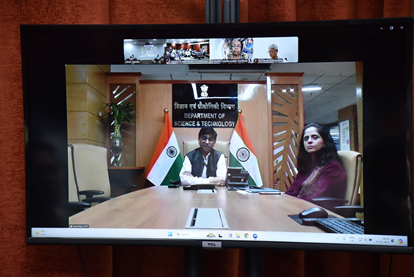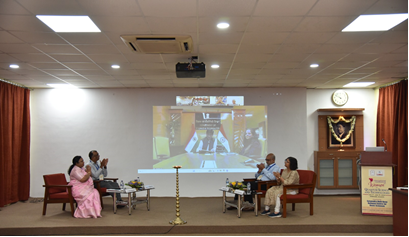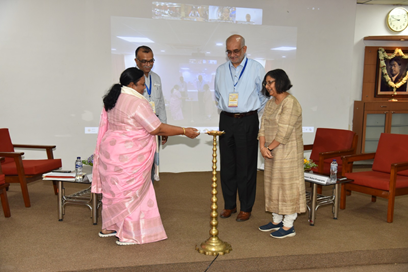The three-day international conference on “Women in Quantum Science & Technology” was inaugurated on July 17, 2024, at the S N Bose Centre for Basic Sciences, Kolkata as part of the yearlong celebration of Bose Einstein Statistics.
“As we usher in the 2nd quantum revolution and accelerate in the journey of our National Quantum Mission (NQM), it is time to recognise and honour the contribution of women in the field,” said Professor Abhay Karandikar, Secretary, Department of Science and Technology (DST) while addressing the conference online as Chief Guest.
“It is a matter of pride for the country that women form a strong part of India's committed quantum community and they would play a major role in making the country a world leader in the area,” he added while speaking to the audience consisting of stellar women scientists from the area.
In 1924, Bose authored the last of the four revolutionary publications which led to the new quantum mechanics (the others being those of Planck in 1900, Einstein in 1905, and Niels Bohr in 1913). Half the fundamental particles in the Universe – BOSONS – are named after him.

S. N. Bose National Centre for Basic Sciences, an Autonomous Research Institute established in 1986 under Department of Science and Technology (DST), Government of India to honour the life and work of Professor S. N. Bose, is celebrating the centenary of Bose’s colossal work in 2024 by organizing three International Conferences and several Outreach Programmes throughout the year. The Women in Quantum Science & Technology is one of these three conferences.
Prof. Tanusri Saha Dasgupta, Director of S N Bose Centre highlighted the examples set by Dr Purnima Sinha, the first woman to get a PhD degree in Physics from Calcutta University and Dr Ashima Chatterjee, who did pioneering work in Chemistry from the same university. Both worked under the guidance of Professor S N Bose who did not make any distinction between men and women as far as science was concerned.
“In Europe and Japan, a forum has been established for women in quantum science. India should follow their example,” Prof. Saha Dasgupta added.
Jt. Secretary of DST, Dr A Dhanalakshmi pointed out that women who form only 20 percent of the task force in the field of Science and Technology must get the right environment to flourish.

Prof. Umesh Waghmare, scientist JNCASR; Prof. Indranil Manna, President, INAE, Prof Rohini Godbole, IISc Bangalore and several women quantum scientists, faculty members and students attended the event.
The second day of the conference was marked by presentations by women scientists from India and abroad on their cutting edge work in quantum science and their journey as women scientists.
Dr. Ekta Kapoor, Head FFT Division DST and Dr Vandana Singh Head WISE-KIRAN Division DST spoke on the National Quantum Mission and on several initiatives taken under WISE-KIRAN programme respectively.

The galaxy of women scientists attending the conference discussed the biases they have faced in the society, at home, at the professional front and the challenges they have overcome in their journey. However, they also highlighted that the picture is gradually changing with innovative ways of negotiating hurdles and balancing home and work. They also discussed policy and attitudinal changes that can help more talented women scientists contribute better to science and technology.






























